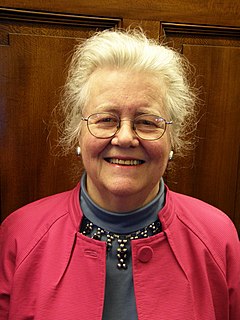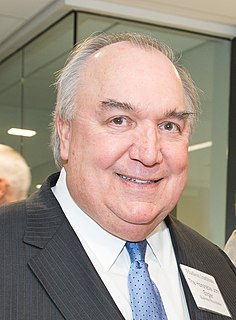A Quote by Michael Gove
In England, more than in any comparable country, those who are born poor are more likely to stay poor, and those who inherit privilege are more likely to pass on privilege. For those of us who believe in social justice, this stratification and segregation are morally indefensible.
Related Quotes
24.9 percent of American children live in poverty, while the proportions in Germany, France and Italy are 8.6, 7.4 and 10.5 percent. And once born on the wrong side of the tracks, Americans are more likely to stay there than their counterparts in Europe. Those born to better-off families are more likely to stay better off. America is developing an aristocracy of the rich and a serfdom of the poor - the inevitable result of a twenty-year erosion of its social contract.
In a society where some people are far more educated than others, in which public education is ill-funded - here I am speaking of the U.S. - while we build more and more prisons to incarcerate youth who ought to be in school, there is already a gap between those with education and those without. Those with educational privilege can be seen as arrogant, remote, alien - and very often they believe themselves superior.
The Church will always be renewed when our attention shifts from ourselves to those who need our care. The blessing of Jesus always comes to us through the poor. The most remarkable experience of those who work with the poor is that, in the end, the poor give more than they receive. They give food to us.
Privilege exists when one group has something of value that is denied to others simply because of the groups they belong to, rather than because of anything they’ve done or failed to do. Access to privilege doesn’t determine one’s outcomes, but it is definitely an asset that makes it more likely that whatever talent, ability, and aspirations a person with privilege has will result in something positive for them.
The more invested I am in my own ideas about reality, the more those experiences will feel like victimizations rather than the ups and downs of relating. Actually, I believe that the less I conceptualize things that way, the more likely it is that people will want to stay by me, because they will not feel burdened, consciously or unconsciously, by my projections, judgments, entitlements, or unrealistic expectations.


































